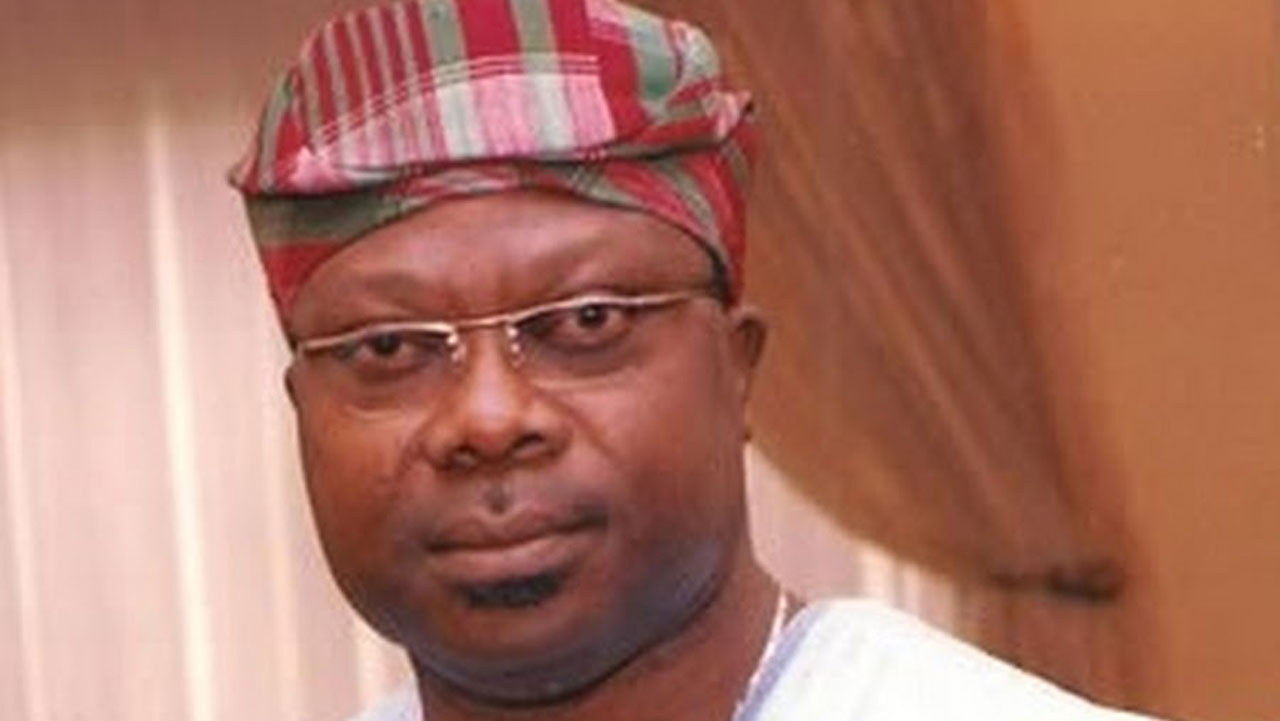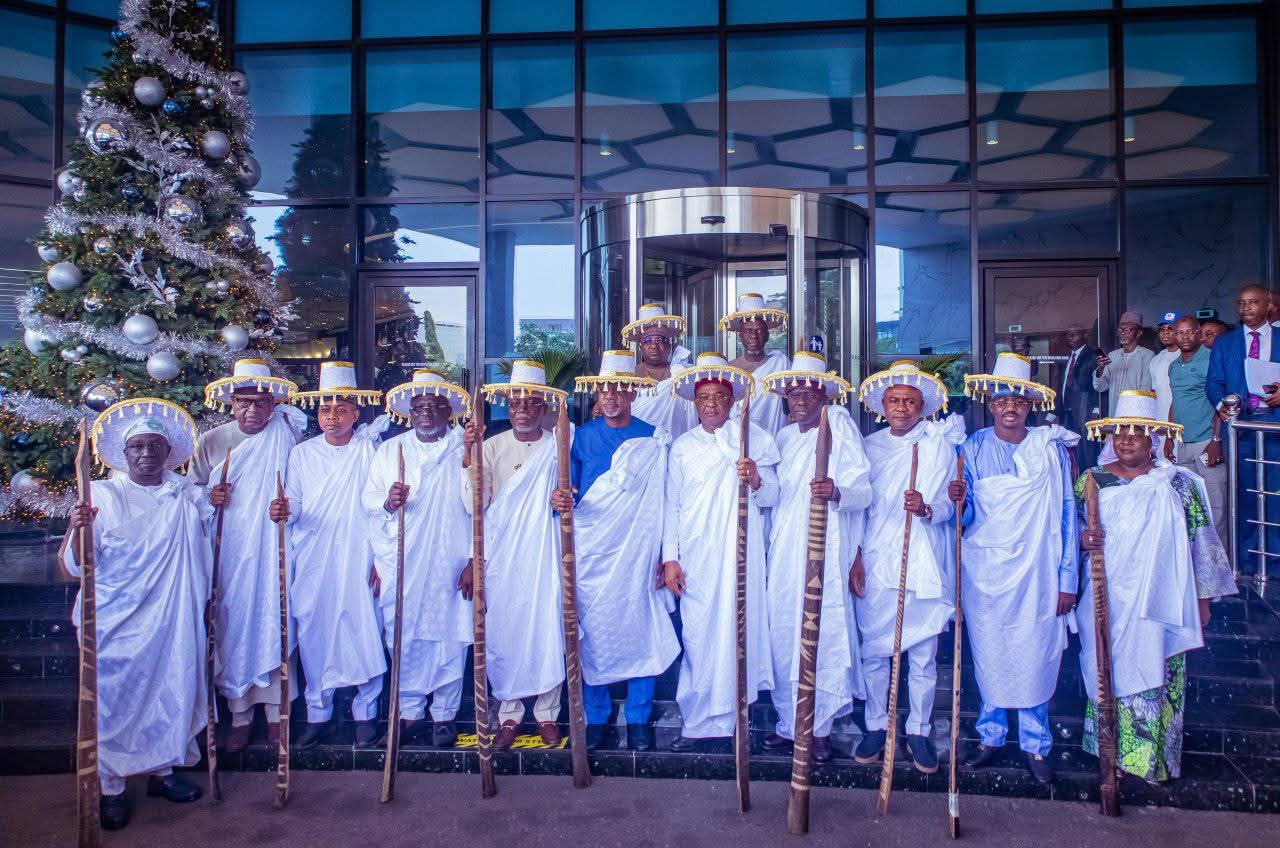
The decision by President Bola Ahmed Tinubu to sign into law the Electricity Bill could best be described as the icing on the cake regarding the performance by the Femi Gbajabiamila-led 9th House of Representatives.
The legislation, which authorises states, companies and individuals to generate, transmit and distribute electricity, was among the Bills sponsored by Gbajabiamila when he held sway in the lower legislative chamber within the last four years.
The landmark legislation, which devolved powers to the 36 states of the federation to issue licenses to private investors who have the ability to operate mini-grids and power plants, provides a framework for the improvement of access to electricity in rural, unserved, underserved, peri-urban and urban areas through the use of conventional sources and renewable energy off-grid and mini-grid solutions.
Gbajabiamila was also the brain behind the students loan bill assented by President Tinubu shortly before he bowed out of the hallowed chamber of the House to assume his new role as the Chief of Staff to the President.
These initiatives fell within the confines of the House legislative agenda, tagged: “Nation Building: A Joint Task,” focusing on 10 key sectors, comprising healthcare delivery; education; economy; security; agriculture and food security; sustainable power; environment and climate change; human capital development and social development; governance; and House reforms.
The aforementioned legislations were among 2,209 bills introduced to the House of Representatives, 451 of which were passed as at March this year, surpassing the successes recorded by previous assemblies on number of bills.
This is aside from another set of 137 bills the lower legislative chamber received from the Senate for concurrence within the period under review, in spite of the devastating impact of the COVID-19 pandemic that took the world by storm.
Among the significant legislations passed after rigorous deliberations, intrigues and horse-trading were the Petroleum Industry Bill (PIB), signed into law by former President Muhammadu Buhari on August 16, 2021.
The passage of the PIB aimed at repositioning the oil and gas sector of the economy, 14 years after it was first introduced into the National Assembly, remains one of the breakthroughs recorded by the 9th House.
Other legislations passed into law ahead of the 2023 general elections was the Electoral Act (Amendment) Bill, which provides for the electronic option of transmitting election results, funding of political parties, mode of primaries, and campaign funding, among others.
Beyond achieving the feat of ensuring the return of the January – December budget cycle, other bills deliberated upon were the controversial Companies and Allied Matters Bill, passed by both the House and the Senate and eventually signed into an Act in November 2020 by President Buhari. Others on the list include Climate Change Bill 2021; the Deep Offshore Bill; the Finance Bills; and National Roads Fund Bill, 2021.
Furthermore, during the review of the 1999 Constitution, a total number of 258 bills were introduced with the House of Representatives passing 68 of them, while the National Assembly jointly transmitted 44 of them to state Houses of Assemblies, which subsequently approved 35 of the bills. In March 2023, former President Buhari assented his signature to 16 of the bills.
The House also deliberated on a total of 730 motions in the first two years, 484 of which were introduced in the first session, while another set of 246 was introduced in the second session with a sizeable number resolved. On insecurity alone, 98 resolutions were passed by the House in the first two years.
With insurgency, kidnapping, banditry, herders’ crises, murders and other forms of criminality assuming an alarming level, the House moved early in 2019 by passing a series of resolutions, calling for urgent actions by the Executive Arm of government. By June 2021, the House had passed over 98 resolutions on insecurity alone. Besides, Gbajabiamila led various standing and special committees and paid physical visits to crisis spots to assess the situation on ground.
For example, between August and September 2019, the Speaker visited Borno, the epicentre of Boko Haram insurgency, Katsina and Zamfara States, to share in the pains of internally displaced persons living in camps outside their ancestral homes. In one particular encounter, Speaker Gbajabiamila paid for the surgery of a baby delivered with Cleft in one of the IDP camps located in Batsari Local Council Area of the North West state of Katsina.
In April 27, 2021, the House, after an executive session that lasted over three hours, urged Buhari to declare a state of emergency on the security sector as part of the measures to arrest the widening insecurity across states.
The House also invited the National Security Adviser (NSA); the service chiefs; paramilitary chiefs; Controller-General of the Nigeria Customs Service; and the Managing Director of Nigeria Communications Satellite (NIGCOMSAT) to brief it on the measures taken so far to address the security challenges.
The House subsequently introduced 13 new bills to the floor, dealing strictly with security issues. Some of the bills are listed below: Armed Forces Act (Amendment) Bill, 2021 (HB. 1405); Police Act (Amendment) Bill, 2021 (HB. 1406); Nigeria Security and Civil Defence Corps Act, 2003 (Amendment) Bill, 2021 (HB. 1407); Nigeria Security and Civil Defence Corps Act, 2007 (Amendment) Bill, 2021 (HB. 1408); Economic and Financial Crimes Commission Act (Amendment) Bill, 2021; Independent Corrupt Practices and Other Related Offences Commission Act (Amendment) Bill, 2021 (HB. 1410); Customs and Excise Management Act (Amendment) Bill, 2021 (HB. 1411); ECOWAS Convention on Small Arms, Light Weapons and Ammunition (Ratification and Enforcement) Bill, 2021 (HB. 1413); and National Security Agencies Act (Amendment) Bill, 2021 (HB. 1415).
The House, at separate periods, waded in to avert the strike action embarked upon the Nigerian Association of Resident Doctors (NARD) and the Academic Staff Union of Universities (ASUU) over the non-payment of their salaries and allowances. The House would later wade into another protracted ASUU strike in 2022, which lasted for over 8 months, before it was suspended on October 14, 2022.
This came following the active role played by the leadership of the House under Speaker Gbajabiamila in the discussions between the Federal Government and the union. The House ensured that substantial funding was captured in the 2023 budget to address some of the demands of ASUU, while steps were also taken to resolve the disagreement over UTAS as a payment platform for university lecturers.
The Gbajabiamila-led House showed commitment in promoting peace between Nigeria and Ghana. Two examples readily come to mind. First was the incident in which some developers invaded the premises of the Nigerian Embassy in Accra to demolish a part of the building in 2020. Gbajabiamila’s quick intervention by putting telephone calls across to his Ghanaian counterpart, Rt. Hon. Aaron Mike Oquaye, doused tension over what would have been a major diplomatic row between the two neighbouring West African countries. Gbajabiamila was able to extract a commitment from the Ghanaian Parliament that the government of Ghana would shoulder the responsibility of rebuilding the demolished property.
One of the most memorable events of 2020 was the speaker’s visit to Accra in September for a meeting with the Ghanaian authorities over the controversial $1million capital base requirement for foreign business owners in Ghana. It turned out that Nigerian traders in Ghana were the hardest hit by the policy, a reason they cried out and protested against alleged maltreatment by the government of Ghana. Gbajabiamila visited and held bilateral talks with the authorities on a mission dubbed, “Legislative Diplomacy,” where he met with President Nana Akufo Addo and the Speaker of Ghana’s parliament, Mike Oquaye.
Upon the completion of a two-day extensive dialogue, Gbajabiamila scored a major achievement by getting the Ghanaian authorities to promise to review the law that made a provision for the $1m. He was later to be commended by the two layers of Nigerian business owners and traders’ associations in Ghana for this move. Interventions are ongoing to lay this particular issue to rest finally. Ghanaian government officials had reciprocated Gbajabiamila’s efforts by paying similar fence-mending visits to the National Assembly in Abuja.
In February, 2022, the House, in an unprecedented parliamentary move, initiated the process, through a resolution, that led to the Federal Government speedily intervening to evacuate Nigerians, especially students, trapped in the Russian/Ukraine war, back to Nigeria. Recall that the Leader of the House, Rep. Alhassan Ado-Doguwa, in compliance with the resolution, personally travelled to the war region to supervise the evacuation.
In the ongoing factional military confrontations in Sudan over the control of Khartoum, its capital, the House rose to the occasion to safeguard the lives of Nigerians trapped there by ensuring the safe evacuation of 5,500 Nigerians back home.
On Tuesday, November 22, 2022, the House also waded into the controversial cashless policy by the Central Bank of Nigeria (CBN) by prevailing on the apex bank to raise the weekly withdrawal limits for individuals to N500,000 from the initial N100,000 and N5million for corporate organisations, from the earlier set N500,000.
However, a civil rights advocacy group, Human Rights Writers Association of Nigeria, (HURIWA) picked holes with the performance of the 9th House of Representatives over the role it played in providing legislative backing to the borrowing spree embarked upon by the President Buhari-led administration.
HURIWA’s National Coordinator, Comrade Emmanuel Onwubiko blamed the rubberstamp posture of the 9th Assembly for the development.
The rights group noted: “It is shameful that the Buhari government moved Nigeria’s debt profile from N42tn to N77tn and this has had attendant effects on debt servicing, which rose from N1.06tn in 2015 to N5.24tn as of 2022 and debt-service-to-revenue ratio grew from 29% to 96%, according to data from the Budget Office.
“Under Buhari, the Monetary Policy Rate rose from 12.5% in 2015 to 18% in April 2023 even as inflation rate galloped to 22.5%, while food inflation galloped to 24% as of April 2023. Even unemployment rose from 10.4% in 2015 to 33.4% in 2020 under Buhari as multidimensional poverty and jobless youths continue to rise into tens and hundreds of millions.
“The 10th NASS must avoid been remote-controlled from Aso Rock by Tinubu and his newly emerging cabals, for independence of legislature is vital for nation building, and strengthening of democratic institutions, amongst others.
“The 10th NASS must ensure zero tolerance to contract scams by members. The Tinubu government must avoid meddling in the affairs of the legislature, face the hydra-headed monster of terrorism, banditry, herdsmen attacks, unstable economy, and unemployment, amongst others.
“He must also ensure his cabinet is devoid of corrupt officials who contributed to plunging Nigeria in the latest ranking of the 2022 Corruption Perceptions Index released by Transparency International in January 2023.”






